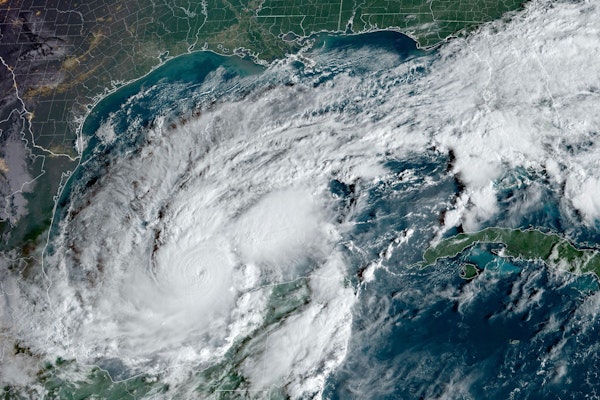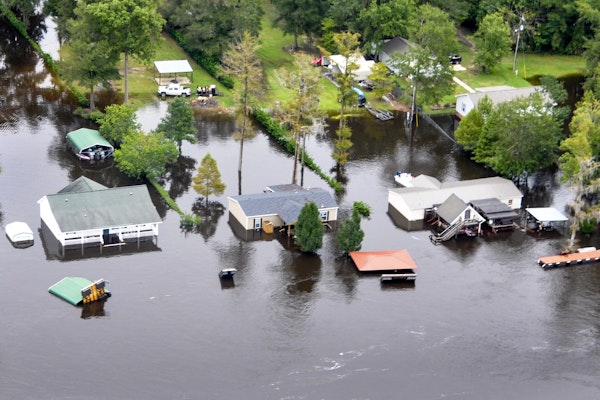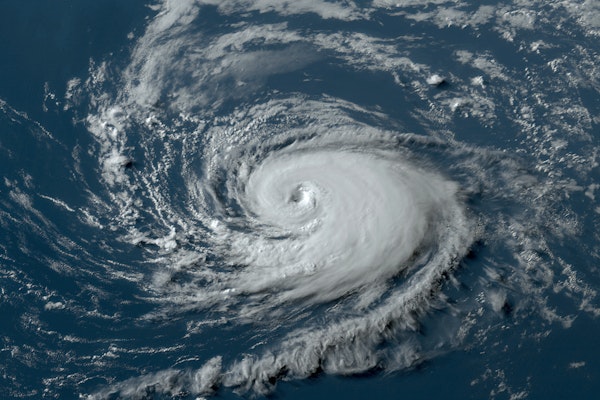
AI-Powered Home ‘Digital Twins’ Aim to Revolutionize High-Risk Property Insurance
An MGA startup uses AI simulations to model catastrophe risks at the property level, targeting homes insurers often avoid. But what does it mean for claims handling?
October 17
Catastrophe
Property
Risk Management
Technology
California
Florida

Western Caribbean Faces Heightened Hurricane Risk Through Late October
CSU researchers forecast above-normal Atlantic hurricane activity for mid to late October, with a focus on the western Caribbean.
October 16
Catastrophe
Property
Risk Management
Alabama
Florida
Louisiana
Mississippi
Texas

AI in Claims Handling Under Scrutiny, But Florida Insurers Say Laws Already Provide Oversight
Florida insurance officials argue existing laws already prevent AI-related discrimination or errors, even as lawmakers consider stricter oversight.
October 9
Insurance Industry
Legislation & Regulation
Property
Technology
Florida

Citizens Insurance Pauses Flood Coverage Proof During NFIP Shutdown
Florida’s state-run Citizens Property Insurance Corporation has announced a temporary deferral of its flood insurance documentation requirement due to the federal government shutdown.
October 7
Catastrophe
Insurance Industry
Legislation & Regulation
Underwriting
Florida

How Inflation, Litigation, and Talent Shortages Are Reshaping Specialty Insurance Claims
A recent report from Argo Group highlights three converging forces shaping the future of specialty insurance: inflation, litigation volatility, and a deepening talent gap.
October 7
Insurance Industry
Litigation
Underwriting
Florida
Georgia

Live Nation and Ticketmaster Sued for Enabling Ticket Brokers and Overcharging Fans
The FTC and seven states allege Live Nation and Ticketmaster enabled brokers to bypass ticket limits, reaping billions in fees while fans paid inflated resale prices.
September 22
Legislation & Regulation
Litigation
Risk Management
Technology
California
Colorado
Florida
Illinois
Nebraska

How Construction Defect Claims in Florida Expand Beyond Pre-Suit Notices
Florida’s Chapter 558 pre-suit process aims to reduce litigation in construction disputes, but procedural loopholes often leave contractors facing broader claims mid-litigation.
September 18
Legislation & Regulation
Litigation
Property
Risk Management
Florida

Man Dies After Losing Consciousness on Stardust Racers Ride at Universal’s Epic Universe
A man in his 30s died after becoming unresponsive on the Stardust Racers ride at Universal’s Epic Universe. The attraction remains closed amid an ongoing investigation.
September 18
Catastrophe
Legislation & Regulation
Liability
Risk Management
Florida

Why the Atlantic Hurricane Season Has Suddenly Gone Quiet in September
Despite reaching the statistical peak of hurricane season, the Atlantic basin is unusually quiet this September, with no active storms and limited tropical development expected.
September 10
Catastrophe
Insurance Industry
Property
Risk Management
Florida
Georgia
North Carolina
Tennessee
Texas

How a $100 Billion Hurricane Could Strike the US and What Insurers Need to Know
Major U.S. metro areas are increasingly vulnerable to $100 billion hurricane losses. This KCC report shows where it’s most likely and how insurers can prepare for the next big one.
August 29
Catastrophe
Insurance Industry
Property
Risk Management
Connecticut
Florida
Louisiana
Massachusetts
New Jersey

How Subcontractors’ Carriers Can Push Back Against Excessive Builder Demands in Florida Claims
In Florida construction-defect cases, subcontractors’ carriers often face inflated demands from builders. Strategic defense can limit exposure to excessive defense cost claims.
August 26
Insurance Industry
Liability
Litigation
Florida

Key Loss Adjusting Trends Shaping Property Claims in 2025
Sedgwick’s 2025 Loss Adjusting Insights Report explores the top nine trends—from tariffs and tech to legislation and climate change—reshaping property claims today.
August 25
Catastrophe
Legislation & Regulation
Property
Technology
California
Florida
Hawaii
Illinois
Iowa

JPMorgan Must Defend Elder Fraud Arbitration Claim from Widow
A federal judge ruled that JPMorgan must face arbitration over claims it failed to prevent a widow’s son from stealing $8.4 million from her bank accounts after her husband’s death.
August 20
Fraud
Legislation & Regulation
Litigation
Risk Management
California
Florida
Massachusetts
New York

Hurricane Erin Threatens East Coast with Life-Threatening Surf and Evacuations Ordered in North Carolina
Hurricane Erin, now a powerful Category 4 storm, is forecast to bring dangerous surf and rip currents to the eastern U.S., prompting mandatory evacuations in coastal North Carolina.
August 18
Catastrophe
Insurance Industry
Property
Risk Management
Florida
North Carolina

Delivery Drones Are Expanding Rapidly as Safety, Cost, and Regulatory Challenges Persist
As FAA regulations evolve, drone delivery is scaling to more U.S. cities, though high costs, airspace safety, and privacy concerns continue to slow full adoption.
August 14
Legislation & Regulation
Property
Risk Management
Technology
Arizona
Florida
Georgia
Kansas
Missouri





